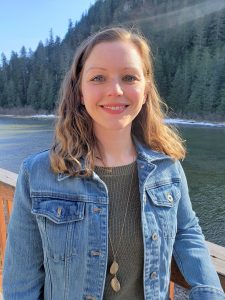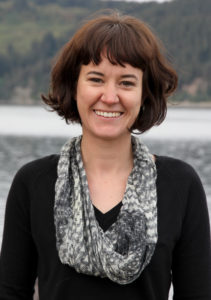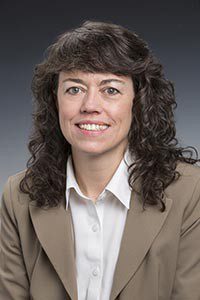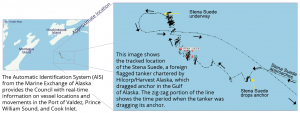
Dr. Danielle Verna joined the Council’s staff in April, filling the position of Environmental Monitoring Project Manager.
The position was previously held by Austin Love, who had been simultaneously managing this area of Council work and Terminal Operations for the last year and a half.
Verna brings important skills and knowledge to the Council. For her doctoral thesis, she studied how maritime trade, including oil transport, can affect the timing and location of invasive species delivery from the ballast water of tankers and bulk carriers, as well as the regulations and current events that impact trade patterns and shipping practices.
She is passionate about applying science to real world management and policy needs.
Her credentials include a Ph.D. in Environmental Science from Portland State University, a M.S. from Alaska Pacific University, and a B.S. from the U.S. Coast Guard Academy.
Verna completed several research reports for the Council as part of her studies:
- Science Night 2013 – Presentation on testing ballast water for invasive species in Port Valdez & other U.S. ports (3.6 MB)
- Analysis Of Crude Oil Tanker Ballast Water Data For Valdez And Prince William Sound, Alaska (2.5 MB)
- Updated: Analysis of Crude Oil Tanker Ballast Water Data for Valdez & Prince William Sound, Alaska – February 2016 (2.9 MB)
- Analysis Of Federal And State Ballast Water Management Policy As It Concerns Crude Oil Tankers Engaged In Coastwise Trade To Alaska (2.1 MB)
- Status Of International And Domestic Regulations On Installation And Use Of Ballast Water Management Systems (1.9 MB)

 Spring brings many things to Prince William Sound – salmon, humpback whales and orcas, and the Alyeska Prince William Sound Traveling Health Fair! The 2020 health fair was canceled just weeks before departure due to the worsening pandemic. Like many things this year, COVID-19 required some creative retooling to carry out the 2021 event, which was held virtually the week of May 17.
Spring brings many things to Prince William Sound – salmon, humpback whales and orcas, and the Alyeska Prince William Sound Traveling Health Fair! The 2020 health fair was canceled just weeks before departure due to the worsening pandemic. Like many things this year, COVID-19 required some creative retooling to carry out the 2021 event, which was held virtually the week of May 17.
